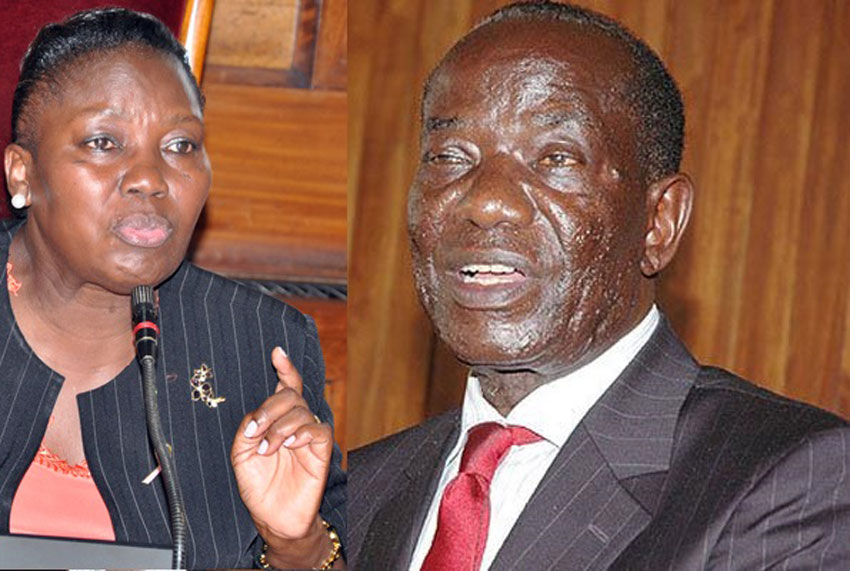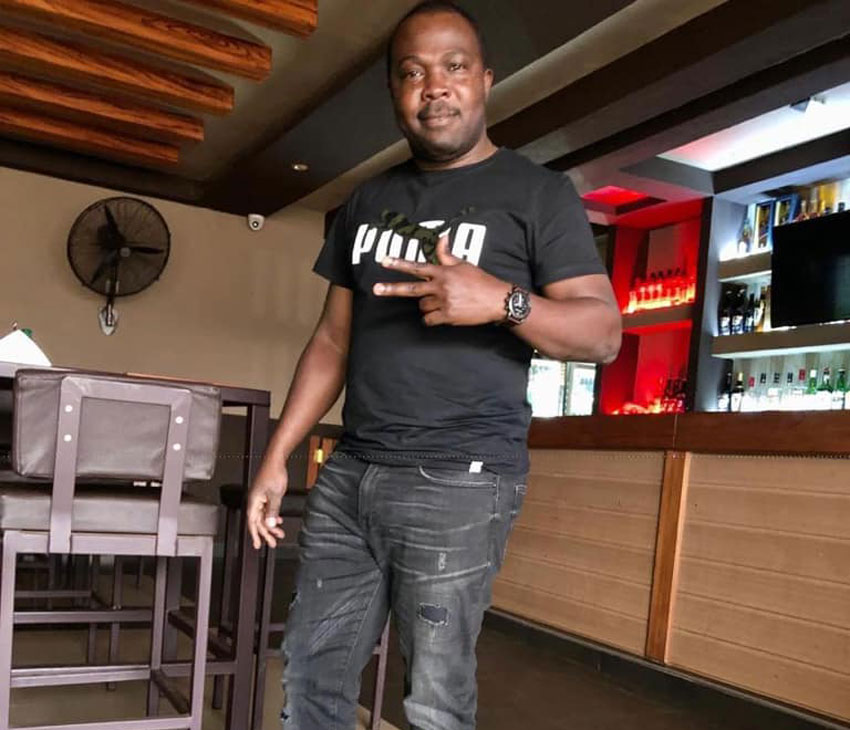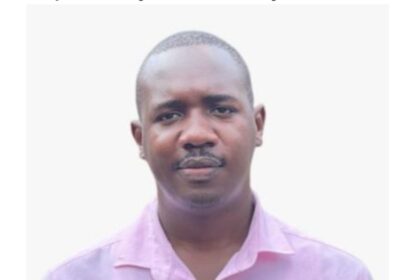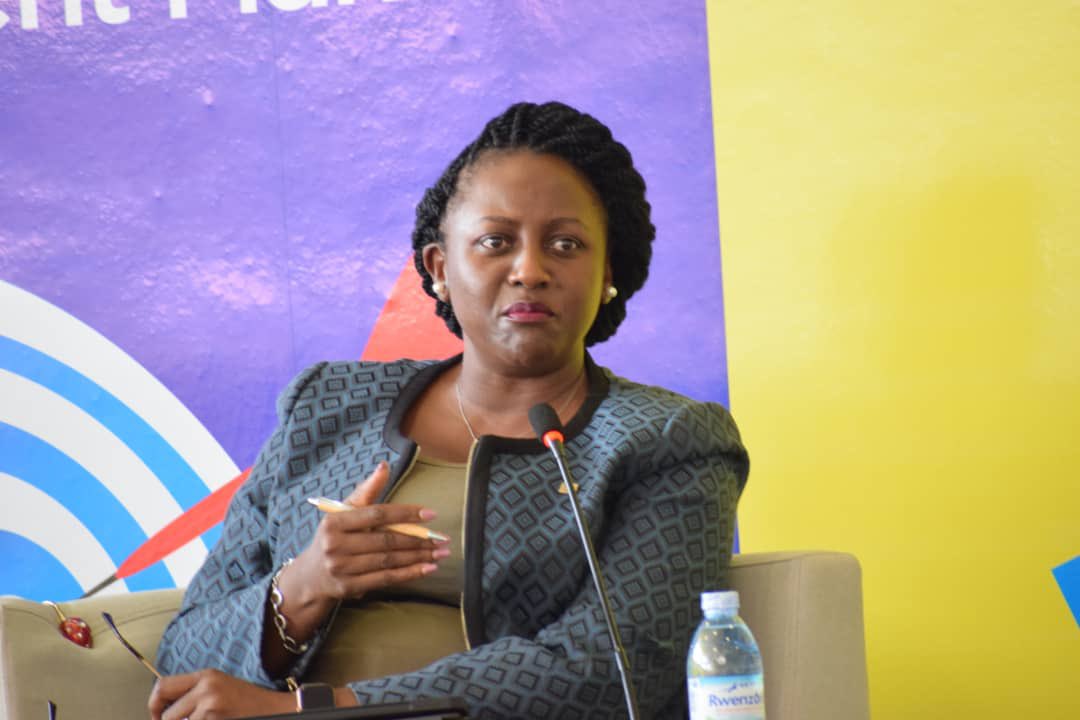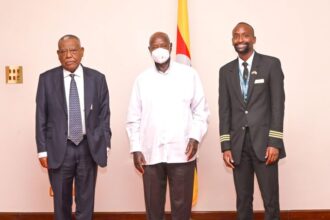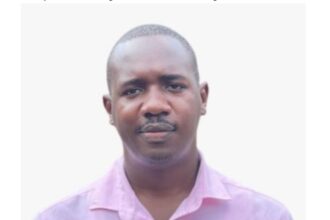Following the attainment of Independence on the 9th day of October 1962 led by the government elected on the Wednesday 25th April, 1962, the Legislative Council (LEGCO) was replaced by the National Assembly, which was the Parliament of the republic of Uganda. The First Session of the First Parliament of Uganda was held on Wednesday 10th October 1962, the following day after independence. Under the Independence Constitution of 1962, the First Parliament of Uganda was partly elected and partly nominated. The Buganda representatives were to continue to be indirectly elected by the Lukiiko.
So far Uganda has had 10 Parliaments and here is a list of the Speakers who have headed these August Houses.
1. John Bowes Griffin (1st Parliament (National Assembly) 1962-May 1963)
Before becoming Uganda’s first Speaker of Parliament, Sir Griffin had served as Chief Justice of Uganda from 1952-1958. Griffin’s ability to lead the first House was not doubted because he had held several positions in different colonies including being the Attorney General in the Bahamas in the mid-1930s and acting as Governor and Chief Justice for various periods, therefore he had what it could take to lead. His Parliament had had 92 members. Griffin died on 2 February 1992.
2. Narendra M. Patel
In May 1963, the Speaker-ship of the first Parliament changed from Griffin to Narendra M. Patel. He was the first Non-European Speaker of Parliament of Uganda. In 1966, the first Parliament ended however in the first Parliament Prime Minister Milton Obote abrogated the constitution and declared himself President of Uganda.
3.Narendra M. Patel (2nd Parliament (National Assembly) 1967-January 1971)
Still, he emerged as a winner and continued with his Speakership. In his term, Parliament witnessed the brutality of President Milton Obote when he abolished all of Uganda’s traditional kingdoms and the declaration of Uganda as a republic. It’s also the time when President Obote overthrew the Independence Constitution and substituted it with the pigeon–hole Constitution after falling out with the Buganda Kingdom. Patel’s speakership came to an end in 1971 when General Idi Amin took over power, and retained all law making authority in the country, rendering the Parliament unnecessary.
Following the dissolution of Parliament, Narendra remained in the country doing his private law practice, however when Amin passed the decree ordering all Ugandans of Asian origin to leave the country in 1973, he left for India, and after a few years, he migrated and settled in Darwin, Australia, where he continued his legal practice. He still lives in Australia.
4. Professor Edward Rugumayo (3rd Parliament this was National Consultative Council from 1979 -1980)
Following the overthrow of Idi Amin in April 1979, a new legislative body known as the Uganda Legislative Council was established and during the 1979 Moshi Conference in Tanzania Professor Edward Rugumayo was nominated to chair the National Consultative Council (NCC) which was the interim Parliament of Uganda National Liberation Front With an initial membership of 30, the membership was later increased to 120.
This legislative body continued to function until the general elections of December 1980.
Prof Rugumayo was not an active politician and has never campaigned for politics. He was a lecturer at Makerere University before he was appointed minister in Idi Amin’s government.
5. Francis K. Butagira 4th Parliament (National Assembly) 1980 – 1985
He served as the Speaker of the 4th Parliament taking over from Prof Rugumayo in 1980. This period marked the return to power of Milton Obote and the Uganda People’s Congress (UPC), following the disputed national elections of 1980. However Butagira lost his position of Speaker when Gen. Bazillio Okello overthrew the UPC regime on 27 July 1985 by a military coup, he, however, continued to be a Member of Parliament from 1989 to 1996. He was later made an ambassadors to Germany, a position he held until recently when he was relieved of his duties. He became the Permanent Representative to the United Nations in July 2003.
6.H.E Yoweri Museveni 5th Parliament (National Resistance Council) 1986–1996
The fifth Parliament Known as the National Resistance Council (NRC), was established following the end of the Ugandan 1981-1985 guerrilla war. Starting with 38 historical members of the National Resistance Movement and National Resistance Army, the legislative body was gradually expanded to include representatives from around the country. The speaker during the Fifth Parliament was Yoweri Museveni, who also concurrently served as the President of Uganda. In 1993, the NRC passed the Constituent Assembly Statute that established and provided for the election of the Constituent Assembly Delegates that worked on the formulation of the new constitution.
6th Parliament (Parliament of Uganda) 1996 – 2001
The sixth Parliament had two speakers, the first was,
7. James Wapakhabulo (1996 – 1998)
Wapakhabulo was the first elected Speaker of Parliament after the promulgation of the 1995 Constitution of the Republic of Uganda. In 1998 he was appointed as the National Political Commissar in the no-party political system until 2001 when he became Second Deputy Prime Minister He is always remembered for strongly opposing the lifting of term limits in 2005. He is also termed as the best Speaker Uganda has ever had. He was a recipient of Nalubaale Medal for civilian activists that had assisted during the guerrilla war. Upon his death, the by then Vice President Gilbert Bukenya proposed that Parliament Avenue in Kampala be renamed Wapa Avenue in honour of Wapakhabulo. He died at his home in Bugolobi in Kampala on 27 March 2004 and was laid to rest at Mafudu Village, Sironko District.
8.Francis Ayume (1998 – 2001)
Ayume joined elective politics in the 1990s as elected to Member of parliament representing Koboko District. In 1998 as Speaker of the House until 2001 when he was appointed Attorney General and represented Uganda in the International Court of Justice in a case where Uganda was accused of invading DR Congo and allegedly plundering its natural resources” Unfortunately on Sunday 16 May 2004, Ayume was involved in a fatal automobile accident at Nakasongola on the Kampala-Gulu Highway and died.
9. Edward Ssekandi (2001–2011)
Ssekandi became Speaker in 2001 and led both the 7th and 8th Parliaments. He joined active parliamentary politics in 1993 when he was appointed as a member to the Constituent Assembly whose work resulted into the 1995 Constitution of the republic of Uganda.
He was later elected MP for Bukoto County Central, Masaka, in 1996, a constituency he has represents to date. He first served as Deputy Speaker under two Speakers that is the late James Wapakhabulo and Francis Ayume 1996 to 2001.
According to the former leader of opposition Ogenga Latigo. Ssekandi will be remembered of his negative rulings such as the decision to release Shs 150 billion for CHOGM, the removal of Henry Banyenzaki from the Standing Budget Committee that ‘raised serious issues about the security of tenure’, and the judgment on the National Social Security Fund (NSSF) saga, for which the opposition marched out of Parliament.
Rebecca Alitwala Kadaga- (2011- date)
Kadaga is the First Woman Speaker of the Republic of Uganda, and Woman Member of Parliament for the Kamuli District. She was Deputy Speaker from 2001, to 2011. She was the Speaker for the 9th Parliament (from 2011-2016), after the election in 2016 she was once again elected (2016-2021) she is the current speaker.
Kadaga holds Bachelors of Laws, a Diploma in Women’s Law and a Master of Arts Degree in Women’s Law. She served as the chairperson of the University Council for Mbarara University, between 1993 and 1996.
Do you have a story in your community or an opinion to share with us: Email us at Submit an Article



